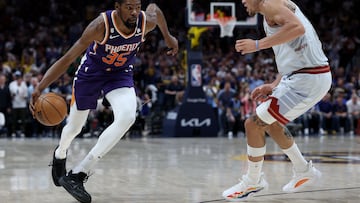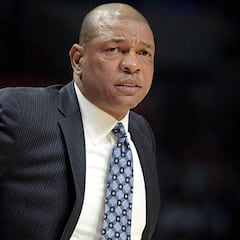How can All-NBA teams selection affect players’ salaries?
Since the inaugural season of 1946, the team has been picked every season of the league’s existence. Initially, the All-NBA Team had two teams.


At the end of every regular NBA season, a group of respected sportswriters and broadcasters come together to vote for the most outstanding players in the league. They carefully select 15 exceptional players based on their positions, with six guards, six forwards, and three centers earning the highly-coveted All-NBA team designation.
Throughout his career, Lebron James has made an incredible eighteen appearances on the All-NBA team, a record-breaking achievement. This surpasses the previous record holders Kareem Abdul-Jabbar, Kobe Bryant, and Tim Duncan, who each had fifteen All-NBA selections.
NBA:
While being recognized as one of the league’s top players is undoubtedly an honor, there is also a financial incentive for those who make the cut. Players who receive enough votes may be eligible for a higher salary, whereas those who miss out on the honor may earn less than they would have otherwise.
As such, All-NBA voting is a matter of personal pride and recognition and a financial consideration for many NBA stars. The stakes are high, and the pressure is on for players to deliver their best performances every season.
How can All-NBA teams affect players’ salaries?
In 2017, the National Basketball Association (NBA) significantly updated its Collective Bargaining Agreement, allowing specific league honors to be included as incentives or bonuses in players’ contracts. The so-called “Generally Recognized League Honors,” with accolades such as NBA MVP, Defensive Player of the Year, All-NBA, and All-Star selections, are now fair game for contract negotiations.
Voting results for the 2022-23 Kia NBA All-Defensive Team ⬇️
— NBA Communications (@NBAPR) May 9, 2023
Complete voting results available here: https://t.co/GC585WosCJ pic.twitter.com/2arHAPScWx
This update has important implications for players, particularly regarding end-of-season awards. Winning the coveted titles of MVP, Defensive Player of the Year, or All-NBA selection can directly impact a player’s ability to secure a “supermax” contract. A “supermax” contract refers to a player’s yearly salary taking up a specific percentage of the team’s salary cap. It is only reserved for the very best players in the league.
Rookies
For young National Basketball Association (NBA) players, navigating the complex world of contract negotiations can be daunting. Here’s a breakdown of how it works:
When a player is drafted in the first round, they sign a rookie-scale contract that corresponds to their position in the draft. After three years under contract, these players become eligible to sign a contract extension that will take effect during their fifth NBA season.
For players on rookie contracts, the maximum contract they can receive is for five years and is worth 25 percent of the salary cap. However, there is also the possibility of earning a “supermax” contract worth 30 percent of the salary cap reserved for the league’s top talents.
Players must meet specific criteria within their first four NBA seasons to be eligible for a supermax contract. Specifically, they must have achieved at least one of the following:
- Two All-NBA selections (either first, second, or third team)
- Voted in as an All-Star starter at least twice
- Won the NBA MVP award at least once.
Veterans
Regarding veteran players in the National Basketball Association (NBA), the rules around contract negotiations change significantly.
Related stories

Do-or-die game at Madison Square Garden

Doc Rivers-Celtics: why did he leave Boston?
After completing their rookie-scale contracts and extensions, players in the league for over seven years can become eligible for “supermax” deals worth up to 35 percent of the salary cap. However, they must have earned individual end-of-season honors, such as an All-NBA selection or the NBA MVP award, to qualify for these contracts.
For a veteran player to be eligible for a contract worth 35 percent of the salary cap, at least one of the following criteria must be confirmed:
- They earned an All-NBA selection in the year before signing their contract.
- They were named Defensive Player of the Year in the year before signing, or they won the honor twice in the previous three seasons.
- They were named MVP in any of the three seasons before signing their contract.